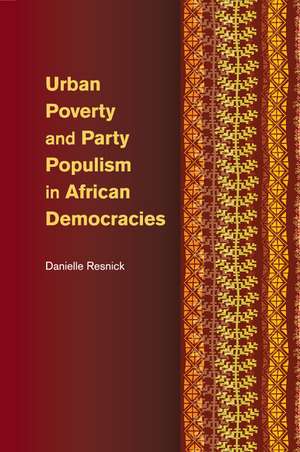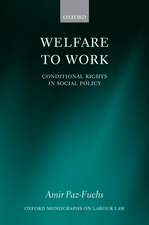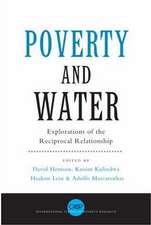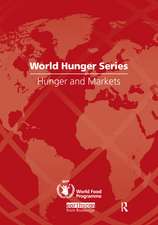Urban Poverty and Party Populism in African Democracies
Autor Danielle Resnicken Limba Engleză Paperback – 14 mar 2018
| Toate formatele și edițiile | Preț | Express |
|---|---|---|
| Paperback (1) | 288.62 lei 6-8 săpt. | |
| Cambridge University Press – 14 mar 2018 | 288.62 lei 6-8 săpt. | |
| Hardback (1) | 695.06 lei 6-8 săpt. | |
| Cambridge University Press – 17 noi 2013 | 695.06 lei 6-8 săpt. |
Preț: 288.62 lei
Nou
Puncte Express: 433
Preț estimativ în valută:
55.23€ • 57.45$ • 45.60£
55.23€ • 57.45$ • 45.60£
Carte tipărită la comandă
Livrare economică 14-28 aprilie
Preluare comenzi: 021 569.72.76
Specificații
ISBN-13: 9781108453165
ISBN-10: 1108453163
Pagini: 318
Ilustrații: 6 b/w illus. 4 maps 48 tables
Dimensiuni: 153 x 230 x 20 mm
Greutate: 0.47 kg
Editura: Cambridge University Press
Colecția Cambridge University Press
Locul publicării:New York, United States
ISBN-10: 1108453163
Pagini: 318
Ilustrații: 6 b/w illus. 4 maps 48 tables
Dimensiuni: 153 x 230 x 20 mm
Greutate: 0.47 kg
Editura: Cambridge University Press
Colecția Cambridge University Press
Locul publicării:New York, United States
Cuprins
1. Urbanization, voting behavior, and party politics in African democracies; 2. Drivers of voting behavior among Africa's urban poor: why populist strategies prevail; 3. The bite of 'King Cobra': populist strategies in the Zambian context; 4. Gorgui's gamble: the rise and fall of populist strategies in Senegal; 5. The view from below: how the urban poor react to political party strategies; 6. Beyond the city: building coalitions with rural voters; 7. Political parties and populist strategies in other African democracies; 8. Conclusions, contributions, and implications.
Notă biografică
Descriere
By combining the perspectives of political elites with those of voters, this book provides a unique analysis of the dynamics of the party-voter relationship in Africa.















